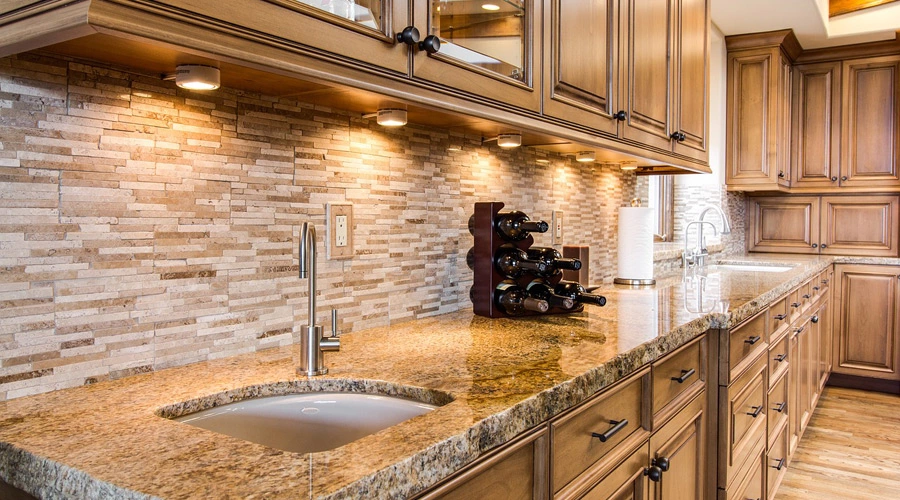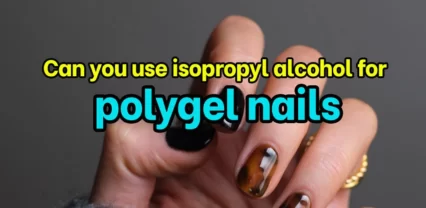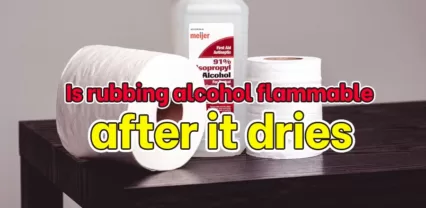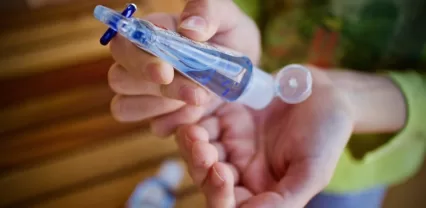It is not a straightforward task to clean granite, precisely your granite countertops. Although the market is filled with tons of disinfectant cleaners, many of these are too abrasive and harsh to use on granite and marble countertops. Such stone beauties must be appropriately taken care of, so you have to make yourself familiar with the products you need to avoid at all costs. This concern will bring you to a common question – can you use Lysol wipes on granite?
Types of common cleaners that cause damages on granite countertops
Lysol wipes and all the following cleaners are the worst things that you can use on granite countertops.

Lysol Wipes
You should never use Lysol wipes on granite countertops, vanity tops, or backsplashes. These wipes contain harsh ingredients that may make the sealer lose its effectiveness. Specifically, scents like lemon have citric acid content so you should avoid using those. This product also contains ammonia and this is something that can be extremely dangerous to granite.
Lysol Lemon All-Purpose Cleaner
Lysol Lemon All-Purpose Cleaner contains both lemon and ammonia and this is not a great choice to use on your granite countertops. Lemons contain acid that is known to cause break down of the sealant that offers protection for granite countertops. Aside from that, ammonia also scratches the granite surface and may even eat it away.
Generally speaking, all-purpose cleaners are known to be harsh for sealers that are used on granite countertops. This is why experts don’t recommend using Lysol Lemon All-Purpose Cleaner on your granite countertops.
Bleach
Bleach may cause extremely harsh effects on the granite sealers. Bleach doesn’t only degrade the countertops’ sealant as it can also cause staining on the porous granite.
Clorox All-Purpose Cleaner with Bleach
Clorox All-Purpose Cleaner with Bleach is a type of all-purpose cleaner that contains some harsh chemicals such as bleach. As mentioned earlier, bleach may cause damages to granite countertops. This means that this cleaner is also not recommended to be used on granite. The cleaner also contains fragrances that can wear out the sealant on the granite countertops.
Disinfecting Wipes
While disinfecting wipes are super convenient to use when cleaning, these can cause problems on your granite countertops. These wipes contain citric acid that is notorious for being bad for sealants used on countertops made from granite.
Pledge Multi-Surface Cleaner
The lemon scent of Pledge is a very notable feature of this product. Unfortunately, this very lemon scent is also the culprit behind big issues on granite countertops. This cleaner also contains citric acid that may be destructive on the sealer on the countertops that can open up the stone and lead to damages.
Windex
Windex has ingredients that may cause permanent damages to granite. Although the most common type of damage that Windex can cause is making the countertops lose their shiny appearance, this may cause pitting as well. Windex may strip off the sealer from the granite countertops and make these prone to staining as well as other types of damages.
Windex Multi-Surface with Vinegar
The primary cleaning ingredient of Windex Multi-Surface with Vinegar is vinegar and this can etch and dull your granite countertops. Using vinegar to clean your granite countertops will probably lead to more harm than good. Aside from that, Windex all-purpose cleaners and products are generally unsafe for use on granite countertops.
Although there is still a long list of other granite cleaners that can be troublesome to use, the ones above are among the most popular products that are used for cleaning granite that may cause negative effects on the appearance and overall life of your precious granite countertops.
Other cleaners that should never be used on granite
Experts suggest that the following are the things that you should avoid using on granite countertops:
- Bath tile bleachers
- Bleach
- Ammonia
- Disinfectants
- Glass cleaners
- Grout cleaners
- Hydrogen peroxide
- Lemon, orange,, and other types of citrus cleaners
- Vinegar
These cleaners and other cleaners that contain such ingredients may strip off the sealer from the granite. The moment this sealer is gone, these cleaners may end up seeping into the granite, leading to damages to the stone. Most of these ingredients may also dull the granite.
Important tips to remember when cleaning granite countertops
Now, since you cannot use Lysol wipes for cleaning granite, how do you clean your countertops and ensure that they don’t end up damaged, then?
Well, don’t worry because there are just a few tips that you need to keep in mind when it comes to keeping your granite countertops clean and sparkling.
Stay away from soap
Even though soap will not cause damages to the stone or sealant, it can still leave behind a filmy residue on the granite countertops. After some time, this film will build up and you will only be able to remove it using a special type of cleaner. Many of these cleaners are unsafe to use on granite and may lead to problems with the countertops.
Avoid letting spills sit for a long time on granite
Letting spills remain on granite countertops for a long time will make the sealer wear out and sooner or later, these spills may also leach into the granite and result in permanent stains as well as other damages to your countertop. It is more likely for acidic spills to cause serious damages so make sure you clean up any vinegar or citrus juice spills immediately.
Dust your granite countertop first with a clean microfiber cloth
To ensure that dirt and dust particles don’t cause scratches on your granite countertops, make sure that you use a clean piece of microfiber cloth for getting rid of any debris from the countertops before you apply or use any type of cleaning solution on them.
Stay away from using Lysol wipes on your granite to ensure that you can enjoy your sparkling countertops for a long time. If you want to remove stain from solid surface countertop, please read our previous in-depth guide.

![Will rubbing alcohol ruin furniture [Truth Exposed]](https://www.sanitisationsingapore.com/wp-content/uploads/2021/09/Will-rubbing-alcohol-ruin-furniture-426x208.webp)

